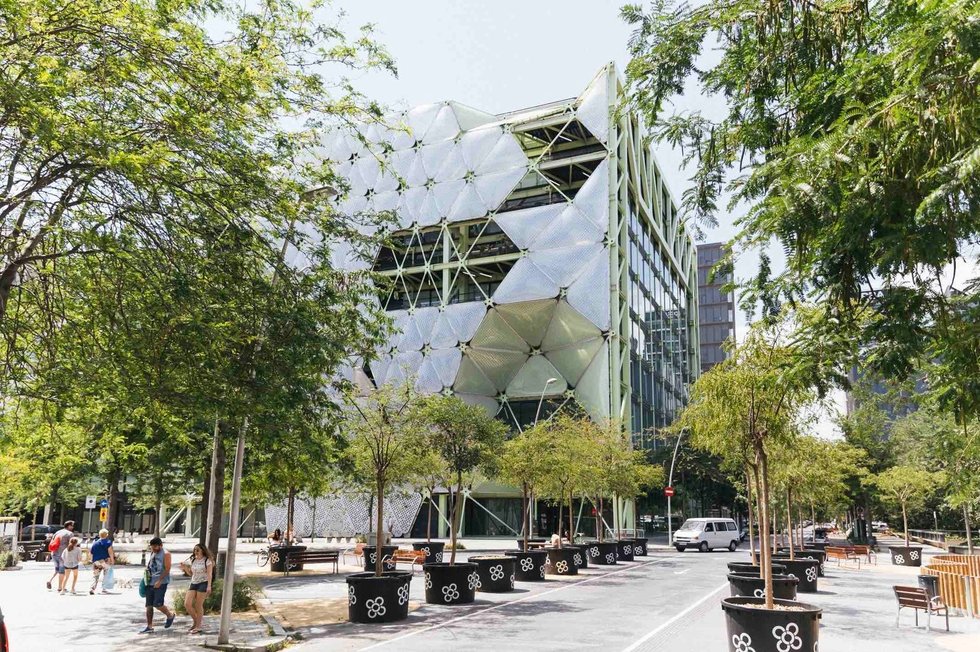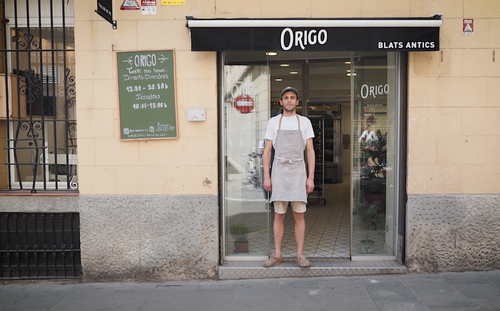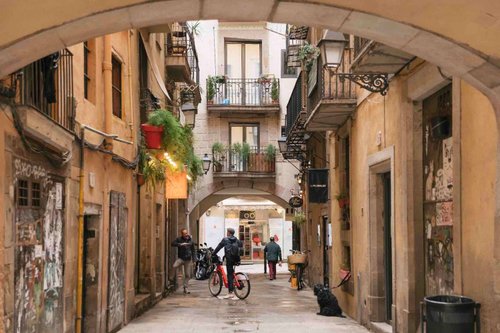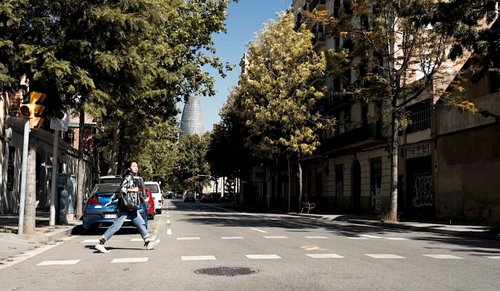The One-Stop Shop: Why the Future’s Bright for Tech Workers in Barcelona
13 nov. 2019
5min


I’m an American expat who has been in Spain for 7 years while teaching English, writing and traveling.
When it comes to growth in investment, Spain must be feeling pretty smug when it compares itself to the rest of Europe. The burgeoning technology industry in the country has been gaining real traction over the past decade, attracting talent from all over the world. But it’s Barcelona’s exciting start-up scene in particular that is encouraging people to relocate, with many pulled in by its still-expanding job market, meaning positions for developers, data specialists, software engineers, and more are plentiful.
We had a look behind the buzz to see what’s been going on and what people working in the sector can expect.
What’s been happening
By the end of 2018, start-ups in Barcelona had received €871 million in investment, placing the city sixth in the Mobile World Capital’s list of top 10 European startup hubs. It’s this kind of investment that has seen Barcelona evolve from being purely a tourist destination into a business center bubbling over with innovation and ideas, drawing in creatives from all parts of the globe like bees to a technology-filled honeypot, which is in turn creating new growth and opportunities.
“Barcelona offers a large and very international tech and start-up scene,” says Thomas Ohr, editor-in-chief of EU-Startups.com. “Today, the city is already home to some of Europe’s most promising start-ups, such as Glovo and TravelPerk.”
This boom has been due to a few key factors. A large city by European standards, Barcelona is home to about 5 million people (a number that covers the city proper and surrounding metropolitan area), a record 18.5% of whom are expats. These new inhabitants are bringing with them diversity, new ideas and ways of thinking, and a desire to turn their dreams into a reality.
For those looking to advance their skills, get on the fast track to success, or even make a total career switch, the city offers countless opportunities for training, including participation in bootcamps that cover subjects such as coding, web development, data analytics, and UX/UI design. Top-rated examples include Codeworks, Le Wagon, and Ironhack, and while the sort of programs they offer require dedication—Codeworks, for example, is a 12-week course that requires attendance six days a week, 11 hours a day—the results speak for themselves. The organizers boast that graduates have a 100% success rate in finding a job in tech afterwards, with more than a quarter of them earning more than the industry-standard salary to boot.
There are lots of training centers offering bootcamps in various subjects, so you can easily find one that best suits your needs and goals. Check out this list to find out more.

Where it’s at
The most important district for tech is 22@, an innovative project launched by Barcelona’s city council in 2000. Known locally as the Districte de Innovació in Barcelona, or the Innovation District, 22@ revitalized the former industrial neighborhood of El Poblenou, and stretches from La Sagrera metro station on the east side of the city down to Vila Olímpica and Forum stations on the coast.
Barcelona Activa, an organization set up by Barcelona City Council to offer help to new businesses, reported that, in the first 15 years of the area’s development, more than 4,500 businesses had been established in the district, creating an estimated 93,000 jobs for residents and expats alike, with almost 3,000 of these positions being freelance. Unsurprisingly, large expat communities have sprung up in surrounding neighborhoods such as Vila Olímpica and Diagonal Mar.
Another area in the city where concentrations of start-ups and tech jobs can be found is around Passeig de Gràcia, a major, centrally located avenue that naturally has great transport links. Whether you end up in Gràcia or 22@, you’ll find plenty of excellent dining options, cultural events, bars and nightlife, and have easy access to the beach by public transport.
What to expect
Many young and small businesses decide to take root in Barcelona because the cost of living is much lower compared to other European hubs. According to Numbeo.com, prices in Barcelona in 2019 for necessities like rent, power, and groceries are much lower than in London, Paris, and Berlin. Basing your business in a place where your euros will stretch further, giving you breathing space to grow, is obviously not a hard decision to make.
Full-time work
Jobs in the technology industry in Barcelona are quite well paid by Spanish standards, especially when you compare them to other fields. And while wages are quite low compared to what you can expect to earn in other top tech hubs, including the US, many developers and techies are opting for Barcelona instead due to the city’s vibrant atmosphere, quality of life, and dynamic professional opportunities. Junior developers who come here aren’t looking to make big bucks right off the bat—leading a balanced, well-rounded life in an exciting, globally facing city, it turns out, is far more important.
The job market is also attractive for many expats due to the volume of work available. New opportunities pop up seemingly every day, meaning job seekers are pretty much guaranteed to hear back about applications or interviews very quickly.
Getting down to the nitty-gritty, the average annual salary for web developers is about €25,222 for a full-time contract, says Payscale.com, depending on experience, role, and other factors. An experienced senior developer can expect to earn about 28% more, on average, while an entry-level developer with no experience will most likely earn 13% less.
Freelancing
Freelancers in the tech industry in Barcelona have similar feelings about the opportunities that the city offers that you can’t find in other places. Ethan Parry, a UX researcher and service designer from the US who has been working in Barcelona for two years, has found everything he wants from a city here. “I love Barcelona—it’s a very different vibe. It doesn’t always have to be about work. Coworkers can go out for tapas, disconnect, talk about other interests,” says Parry, who was previously based in San Francisco and Washington, DC. “There’s a work-life balance that people try to respect. I feel like I’m challenged here and want to do my best, but at the same time I can close my computer occasionally and go to the beach or for a bike ride, and that’s really nice.”
“There’s a work-life balance that people try to respect. I feel like I’m challenged here and want to do my best, but at the same time I can close my computer occasionally and go to the beach or for a bike ride, and that’s really nice.”

Out-of-office benefits
Living and working in tech companies really gives workers a sense of community. Jalal, from Venezuela, and Martin, from Germany, work for the same start-up near Passeig de Gràcia and agree that the city and close bonds of workers make relocating for work much easier. “There are a lot of people from different places here,” says Martin. “Everyone is very nice and it’s easy to get to know people outside work and make friends. We do things together like playing volleyball or going hiking. Besides that, during lunch we practice Spanish and often talk about politics.” Jalal agrees, adding, “I’m not sure if living far from home puts expats in a constant holiday mood, but they are much more likely to go for beers after work.”
Eleonora Majorana—a graphic designer specializing in branding and packaging who made Barcelona the base for her company, Branding Little Brands, 13 years ago—explains why she chose this city above all others. “You can walk or get anywhere easily by public transport,” she says. It’s a Mediterranean city, so the rhythm is a bit more relaxed than a stressful city like New York or Mexico City. And it’s easy to make friends in the international community, so you will never feel alone here.”
*It’s a Mediterranean city, so the rhythm is a bit more relaxed than a stressful city like New York or Mexico City. And it’s easy to make friends in the international community, so you will never feel alone here.”
The Takeaway
The growth of this sector is showing no signs of slowing down yet. Barcelona has proved it can compete with the top contenders in Europe and provide its residents with an enviable lifestyle as well. A strong job market and growing investment, combined with the perks of a Mediterranean lifestyle? It might just be the only place to live and work for techies!
Photos: WTTJ

Inspirez-vous davantage sur : Work in Barcelona
Moving to Barcelona for work? Navigate the job jungle in this international hub with our insider tips, advice from locals and insights from industry experts.

Work in Barcelona: François
Originally from Belgium, he left his job at Google in San Francisco to move to Barcelona with his wife, where he decided to open his own bakery.
11 déc. 2019

Work in Barcelona
Considering relocating to Barcelona? Let’s have a look behind the scenes to understand what it takes to be a happy expat in Barcelona.
11 déc. 2019

Work in Barcelona: Amy
Born and raised in Canada, Amy moved to Barcelona to change career by retraining as a software developer. Here's her expat experience of the city.
11 déc. 2019

My Barcelona: ‘The city is so much richer than it seems’
For Anaïs, Barcelona is such an enticing city that she has made it her home not once, but twice.
13 nov. 2019

My Barcelona: ‘It’s the Silicon Valley of Europe’
Frenchman Erwan Riou originally qualified as an architect, but after a stint in Brazil, the 33-year-old started retraining as a programmer...
13 nov. 2019
La newsletter qui fait le taf
Envie de ne louper aucun de nos articles ? Une fois par semaine, des histoires, des jobs et des conseils dans votre boite mail.

Vous êtes à la recherche d’une nouvelle opportunité ?
Plus de 200 000 candidats ont trouvé un emploi sur Welcome to the Jungle.
Explorer les jobs